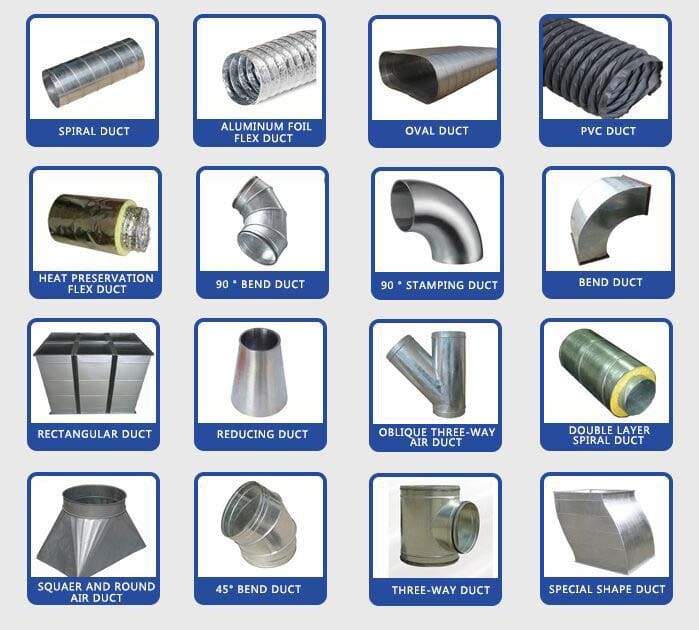When it comes to creating a cozy living environment, grasping HVAC is vital. Whether you're a homeowner wanting to make upgrades or someone interested in learning more about heating and cooling systems, this guide will help you find your way through the frequently confusing world of HVAC. From choosing the right system to knowing when to fix or swap out your existing setup, we will provide you with the information you need to budget wisely for your HVAC needs.
Your HVAC system has a crucial role in your home’s overall efficiency and comfort, but many people are unaware of the costs associated with installation, maintenance, and repairs. With this knowledge, you can make educated decisions that not just enhance your indoor comfort but also help you save on energy bills. We'll also explore common HVAC problems and present solutions, tips for improving energy efficiency, and guidance on maintaining good indoor air quality. By the end of this article, you'll be better equipped to understand the costs involved and how to make the most of your HVAC investment.
Grasping Heating, Ventilation, and Air Conditioning
HVAC stands for heat, air circulation, and the process of cooling. It is a crucial element of residential and business buildings, guaranteeing comfort and maintaining indoor air quality. These systems regulate thermal comfort and humidity control while offering pure air through effective filtration and ventilation. They are found in multiple types, each crafted to satisfy the distinct heating and cooling needs of the environment they serve.
At its heart, an HVAC system consists of a furnace or heat pump for warmth, an AC unit for temperature reduction, and a series of air ducts or pipes that distribute air throughout the building. The system also includes a climate control unit for adjusting heat levels and filtration systems to eliminate dust and pollutants from the air. Understanding how each component functions in unison is important for optimal functioning and maintenance.
The effectiveness of an HVAC system is greatly influenced by proper setup and regular care. Residents and businesses must select the appropriate system based on the size and individual specifications of their environment. Additionally, regular evaluations and maintenance help avoid common malfunctions and ensure the system functions at peak effectiveness, ultimately lowering money on energy costs and increasing the service life of the equipment.
Heating, Ventilation, and Air Conditioning Maintenance and Efficiency
Consistent maintenance is critical for keeping your HVAC system operating efficiently. This includes tasks such as replacing air filters, cleaning coils, and monitoring refrigerant levels. Ignoring these maintenance tasks can cause decreased system efficiency, higher energy bills, and even unexpected breakdowns. Property owners should schedule professional inspections at least once a year to ensure all components are functioning correctly and to catch any potential issues before they grow worse.
Efficiency is not just about routine maintenance; it also involves optimizing your HVAC system's performance. Think about using smart thermostats to set temperatures based on your routine, reducing energy consumption when you're not home. Sealing your home properly and fixing any air leaks can significantly enhance efficiency by allowing your system to work less while maintaining comfort levels. Small changes in your HVAC usage habits can result in substantial savings over time.
Furthermore, upgrading to energy-efficient models can yield both short-term and long-term benefits. Newer systems are designed with innovative technology that improves efficiency ratings, which translates to lower energy costs. If your system is more than a decade old, it may be appropriate to assess your options. Putting money in an eco-friendly HVAC system not only supports reduce your environmental impact but can also increase your home's value and provide you with better indoor air quality.
Cutting-edge HVAC Technologies and Innovations
The HVAC sector is constantly evolving, with developments in tech leading to more efficient heating and cooling solutions. One of the most notable developments is the emergence of connected HVAC systems. http://nutris.net/members/pumaink2/activity/2511149/ can be operated from a distance via mobile apps, allowing homeowners to monitor and adjust their heating and cooling settings from any location. This not only enhances convenience but also adds to energy savings by allowing users to fine-tune their system based on live data and occupancy patterns.
Another significant innovation is the integration of renewable energy sources within HVAC systems. Solar-powered HVAC systems, for instance, utilize solar energy to minimize reliance on traditional power suppliers, resulting in lower electricity bills and a diminished carbon emissions. Additionally, earth-sourced heating and cooling systems are increasing in popularity for their efficiency and green benefits. By taking advantage of the ground's stable subterranean temperature, these technologies can ensure comfortable indoor conditions while consuming less energy than standard systems.
As HVAC technologies continue to develop, indoor air quality is a top priority for homeowners and organizations alike. Modern systems are now outfitted with cutting-edge filtration and ventilation solutions that significantly enhance indoor air quality. The best air purifiers and automated sensors detect and respond to airborne toxins and allergens, providing fresher air while encouraging improved health and comfort. These advancements not only make HVAC technologies more optimized but also elevate the overall residential and working environment.

